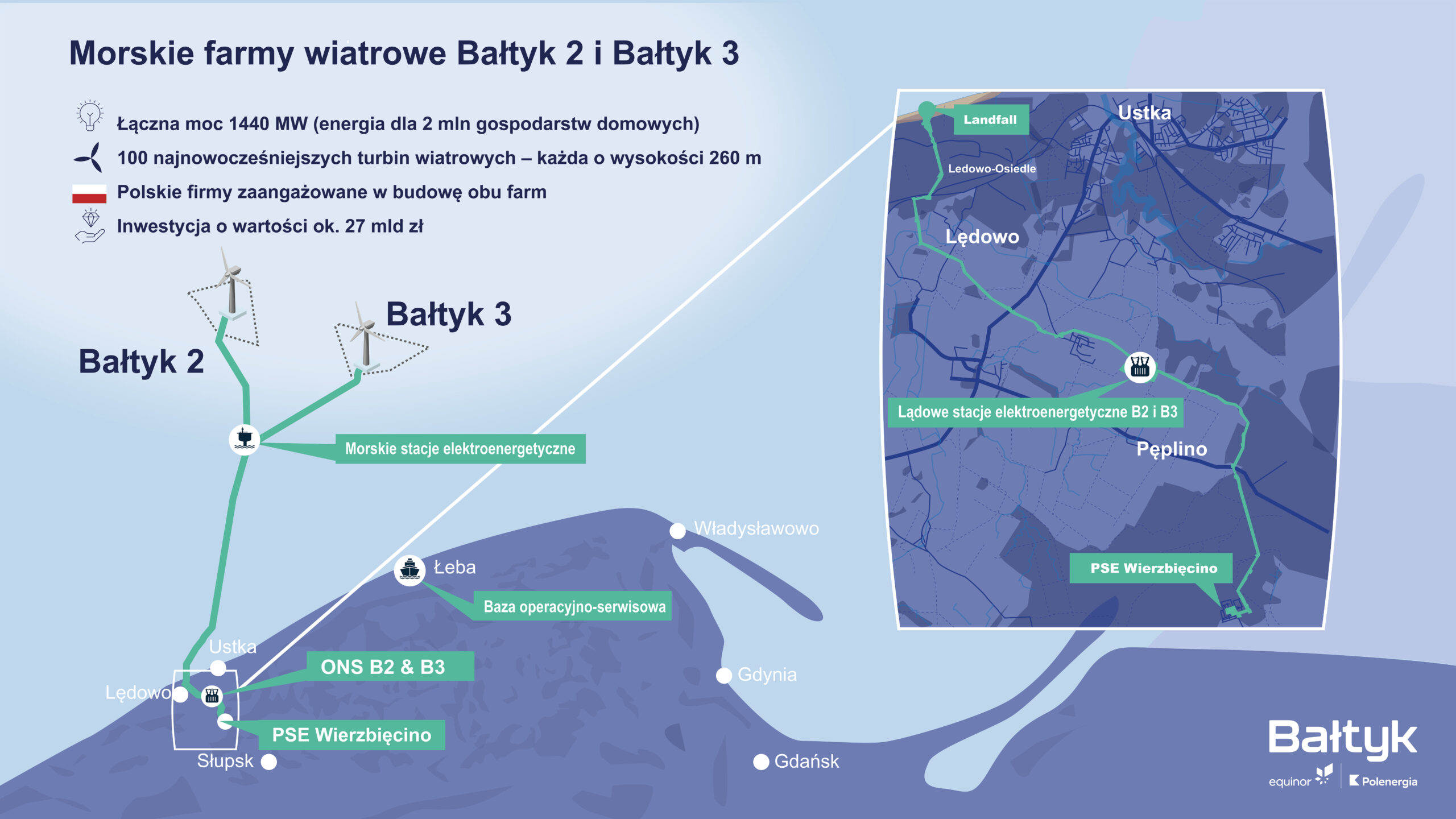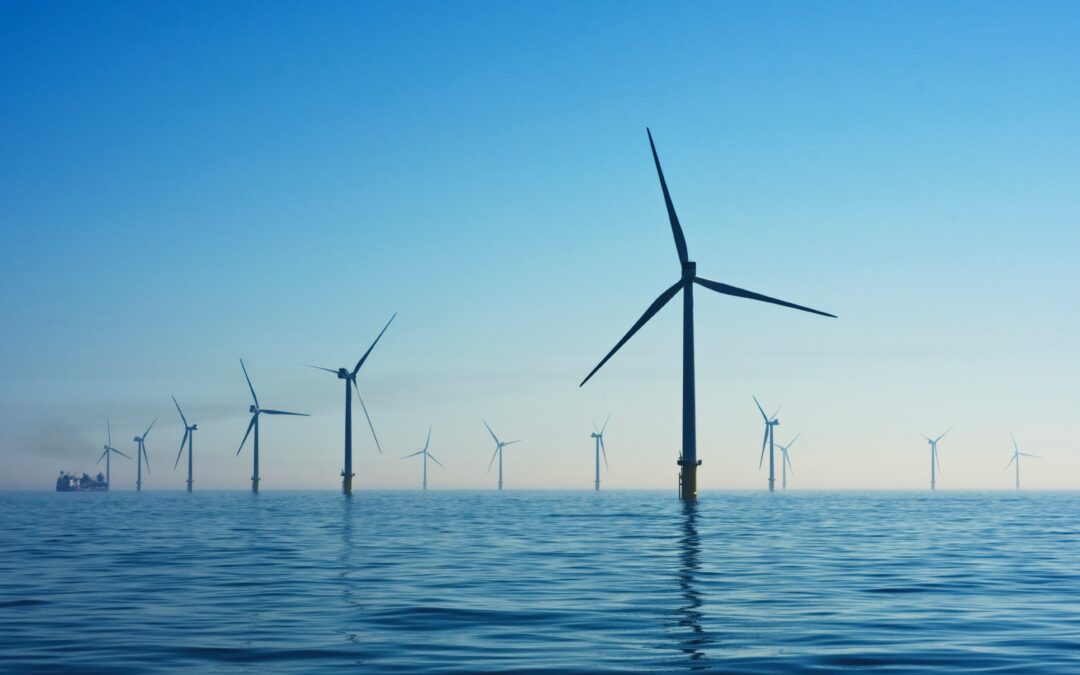Keep our news free from ads and paywalls by making a donation to support our work!

Notes from Poland is run by a small editorial team and is published by an independent, non-profit foundation that is funded through donations from our readers. We cannot do what we do without your support.
Poland’s biggest private energy company, Polenergia, and Norway’s Equinor have approved final investment decisions for the construction of two offshore wind farms in the Baltic Sea, less than 40 kilometres off the Polish coast.
The capacity for the two farms is expected to reach 1440 megawatts (MW), and they are expected to generate enough electricity to power more than two million Polish households.
This is the third such investment in Poland – which does not currently produce any electricity from offshore wind farms – after two projects announced by state-owned companies.

Source: Polenergia press release
The two wind farms, each with a planned capacity of 720 MW, represent a total investment of around 27 billion zloty (€6.4 billion). Construction is set to begin immediately, with power production expected to start in 2027 and full commissioning targeted for 2028.
They will be located in Poland’s exclusive economic zone in the Baltic Sea and will respectively be approximately 37 km and 22 km from the coast. Together, they will comprise 100 turbines, each 260 metres tall.
Named Bałtyk 2 and Bałtyk 3, the wind farms are part of Poland’s broader plan to develop up to 6 gigawatts (GW) of offshore wind capacity by 2030. Other such projects that have reached final investment decision include the 1.2 GW Baltic Power (Orlen and Northland Power) and the 1.5 GW Baltica 2 (PGE and Ørsted).
Poland’s PGE and Denmark’s Ørsted have finalised plans to build a 30 billion zloty offshore wind farm that will generate 1.5 GW, with construction beginning this year.
It is expected to provide electricity to around 2.5 million households, starting in 2027https://t.co/JAX92KjVQY— Notes from Poland 🇵🇱 (@notesfrompoland) January 31, 2025
“These [Bałtyk 2 and Bałtyk 3] are among the largest infrastructure projects in Poland’s history,” said Michał Jerzy Kołodziejczyk, president of Equinor in Poland. “They will contribute to energy security, support economic growth, and provide renewable energy from the Baltic Sea.”
The investment was also praised by Dominika Kulczyk, the richest woman in Poland, who owns the largest stake of more than 40% in Polenergia and is chairwoman of its supervisory board.
“Poland can and will be, thanks to the projects developed by Polenergia and Equinor, powered by clean energy produced in harmony with nature, with respect for our planet’s resources and in service of future generations,” she said in a statement.
Equinor and Polenergia are also preparing for the Bałtyk 1 project, which is dependent on the outcome of a second-phase auction for offshore wind development expected later this year.
Poland has long been one of the most coal-reliant countries in the EU. Despite speeding up renewables development in recent years, the country still used coal to generate 56.7% of its electricity last year. Last month, however, coal produced less than half of Poland’s electricity for the first time.
According to the Polish Wind Energy Association, the country’s total offshore wind potential in the Baltic Sea could reach 33 GW. If fully developed, it could cover up to 57% of Poland’s electricity demand, the association said in its report in November.
Coal produced less than half of Poland's power for the first time ever last month.
Meanwhile, the share of renewables rose to 34.2%, as Poland slowly moves away from fossil fuels.
For more, read our full report: https://t.co/WXyxQe0gQ7 pic.twitter.com/Fav6BfN8LF
— Notes from Poland 🇵🇱 (@notesfrompoland) May 13, 2025

Notes from Poland is run by a small editorial team and published by an independent, non-profit foundation that is funded through donations from our readers. We cannot do what we do without your support.
Main image credit: Nicholas Doherty / Unsplash

Alicja Ptak is deputy editor-in-chief of Notes from Poland and a multimedia journalist. She has written for Clean Energy Wire and The Times, and she hosts her own podcast, The Warsaw Wire, on Poland’s economy and energy sector. She previously worked for Reuters.



















